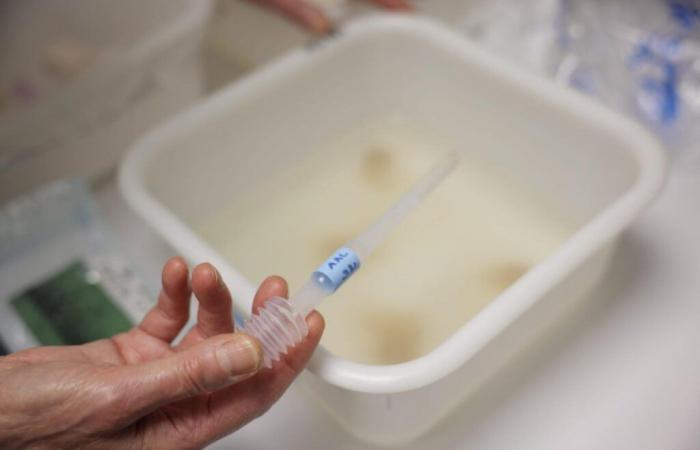“At a time when infectious diseases are evolving, the Institut Pasteur must have additional strike force”summarized its director, Yasmine Belkaid, during the official presentation of the “Pasteur 2030” strategic plan, Tuesday January 21. “Global warming, the upheaval of ecosystems, changes in our lifestyles favor epidemics, resistance to antibiotics, the transmission of animal diseases to humans and chronic inflammations responsible for cancer or neurodegenerative diseases »she notes.
Consequently, the Institut Pasteur has three objectives: to advance our understanding of infectious diseases; find solutions to combat them; and share this knowledge within society. The immunologist thus announced the creation of a research center in vaccination and immunotherapies in order to fight against these pathologies and resistance to antibiotics.
Two research centers
Thanks to collaborations with hospitals as well as academic and industrial partners as part of a new France Vaccins consortium, the objective will be to boost the development of new generation vaccines and immunotherapies. The center will also participate in pandemic preparedness by accelerating research and development procedures in the event of a health emergency.
By 2028, another research center will be created, which will focus on infections linked to climate and the environment. The infrastructure will combat the most important emerging infectious diseases, including those caused by bacteria or parasites transmitted by insect vectors.
Sleeping sickness, malaria… “Research on mosquitoes is becoming more and more crucial as cases of new diseases they transmit will explode”explains Anna-Bella Failloux, head of the arbovirus and insect vectors unit. «The goal is to anticipate future epidemics in our territory by having better knowledge of the infection of the mosquito itself and its immune system. Thanks to this, we can then develop blocking strategies,” she continues, citing the example of Wolbachia.
-This bacteria, which prevents the transmission of dengue, Zika and even chikungunya, was introduced via mosquito carriers in New Caledonia in 2019. They then mated with wild mosquitoes, creating a population of mosquitoes incapable of transmitting these viruses. , which has significantly reduced dengue fever.
Continue investments in research
This new center, the first of its kind in Europe, will multiply by six the storage capacities of the current insectary at the Pasteur Institute – which already works on tens of thousands of mosquitoes from nearly twenty different countries. It will provide a high-security technological environment to study the most critical pathogens.
“These scientific projects are becoming more and more expensive, while fewer and fewer states are financing this work”regretted Yasmine Belkaid, recalling that France is the country with a high economic level which invests the least in research.






